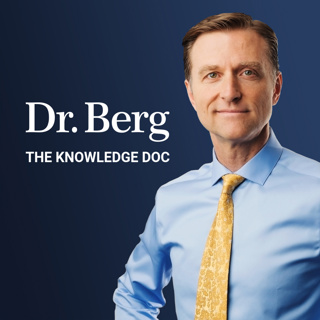
16 Signs That the Body Needs More Nutrients: Fixing the Deeper Cause
Today, we’re going to look at 16 common signs of nutrient deficiencies. First, let’s look at why you might be deficient in the first place. Here are some of the common causes of nutrient deficiencies: • Not eating nutrient-dense foods • Eating foods grown in depleted soils or grown in water (hydroponics) • Genetic weaknesses • Low stomach acids • No gallbladder/gallbladder issues The following symptoms are 16 signs your body needs more nutrients. 1. Brittle nails–protein deficiency 2. Blue sclera–iron deficiency 3. Pain in right scapula–bile deficiency 4. Tetany (twitching)–magnesium deficiency 5. Flaky, scaly skin–omega-3 deficiency 6. High blood pressure–potassium deficiency 7. Excessive worrying–vitamin B1 deficiency 8. Hyperthyroidism–boron deficiency 9. Hypothyroidism–selenium deficiency 10. Hip clicking/joint clicking–vitamin D3 deficiency 11. Low testosterone–zinc deficiency 12. Slow hair growth–manganese deficiency 13. Premature gray hair–vitamin B5 deficiency 14. Red gums–vitamin C deficiency 15. Feeling weak–sodium deficiency 16. Bruising easily–vitamin K1 deficiency If you’re deficient in any of the trace minerals like boron or manganese, be sure to take a blend of trace minerals rather than taking them individually.
23 Mars 20246min

How to Build up Your Glutathione without Supplements
In this podcast, we’re going to talk about the antioxidant glutathione. Glutathione is an important antioxidant present in all of your cells. It helps detoxify heavy metals and protects against free radical damage and oxidation. Your body makes glutathione! You should only take a supplement if you have Tylenol poisoning. Tylenol depletes glutathione and puts your liver at risk for damage. If you’re dealing with Tylenol poisoning, you may be given an NAC supplement, a precursor to help build up your glutathione. Glutathione deficiency symptoms include the following: • Trouble sleeping • Brain fog • Fatigue • Mood issues • Depression • Anxiety Top causes of glutathione deficiency: • Alcohol • Low-calorie diets • Overtraining • Vegan diets • Low-protein intake • A mutation of the MTHFR gene • Folic acid supplements Try the following tips to ensure that you’re getting enough glutathione without taking a supplement: 1. Get enough glycine. Consume organ meats, the skin from meat and fish, bone broth, and gelatin. 2. Ensure adequate B vitamin intake. Avoid synthetic B vitamins. Meat is a great source of B12 and consuming organ meats and dark leafy greens will help add folate to your diet. 3. Get plenty of vitamin C from sources like sauerkraut and leafy greens. 4. Get enough sleep. 5. Do not over-exercise. Limit high-intensity exercise to twice a week. 6. Reduce stress. Adaptogens, going for a walk, listening to music, and even physical labor can reduce stress. 7. Consume sufficient protein with plenty of calories. 8. Increase carb intake to 50 grams per day. 9. Consume cruciferous vegetables. 10. Consume seafood for trace minerals like zinc and selenium.
22 Mars 20247min

7 Ways to Burn More Fat While Sleeping
In this podcast, I’m going to give you 7 tips to help you increase fat-burning while you sleep. Poor sleep stops fat-burning, so it’s important to make sure you’re getting good sleep. Check out these tips to boost fat loss while you sleep. 7. Only eat when you’re hungry. Let your appetite dictate your fasting pattern. 6. Reduce extra fat in your diet. This forces your body to burn your body fat for fuel. 5. Ensure your carb intake is not too high. Focus on eating meat and vegetables. If you have a thyroid issue, try adding berries to your diet. If you’re dealing with gut inflammation, try the carnivore diet. 4. Focus on good sleep hygiene. Invest in a good mattress, make sure the room is not too hot, and turn off the lights. 3. Natural sleep aids can help improve your sleep and increase fat-burning. Try drinking apple cider vinegar throughout the day to help regulate your blood sugar and help you sleep. Collagen helps with sleep because it contains glycine. Niacinamide, vitamin D, and sea salt are also important for good sleep. 2. Do a full-body workout that gets you tired and also makes you sweat. Intense exercise activates growth hormone which helps you burn fat, even while you’re resting. 1. Go to bed between 9:00 and 9:30 p.m. and sleep for 9 hours. Getting plenty of sleep is crucial for fat loss.
21 Mars 20247min

Dr. Berg Speaking at the Hack Your Health Event (MUST ATTEND)
I'm excited to share a little bit about the upcoming Hack Your Health event that I’ll be speaking at. Please join me in welcoming Robin Switzer, the CEO of the event. At the Hack Your Health event, I’m going to share fascinating information about the following topics: 1. Cancer 2. The autoimmune disease epidemic 3. The heart’s response to nutrition 4. Metabolomics Metabolomics allows a practitioner to look deeper at your biochemistry beyond a standard blood test. Metabolomics provides a bigger picture and is a better strategy for creating health than the standard healthcare model. It can help predict your risk for chronic illnesses like diabetes two decades before they develop. Misdiagnosis is a common problem people experience when seeking answers about their symptoms. Metabolomics can help reduce misdiagnosis by looking at specific biomarkers to understand precisely what the problem is. The Hack Your Health event will be held in Austin, TX, May 31-June 2. A general admission ticket is $299.00, but it’s discounted to $249.00 for the Dr. Berg community. The goal of the event is to educate as many people as possible! The Hack Your Health event aims to educate people about more than just diet! I hope to see you there.
20 Mars 202416min

First Sign of a Magnesium Deficiency NEVER to Ignore
Today, I’m going to share 22 signs of a magnesium deficiency. Sixty percent of magnesium is in the bone, 20% is in the muscle, 19% is in the soft tissue, and 1% is in the blood. Magnesium deficiency is the most overlooked deficiency because it cannot be detected by a blood test. The top causes of magnesium deficiency include: • Consumption of sugar and refined carbs • Alcohol consumption • Cirrhosis of the liver • NPK fertilizer leads to crops that are low in magnesium • Malabsorption from gut inflammation • Diuretics • PPIs • Gastric bypass surgery • Low vitamin D • Inflammation Diabetes, high blood pressure, arthritis, osteoporosis, and cardiovascular disease are all associated with low magnesium. The best sources of magnesium are leafy greens, almonds, and dark chocolate, but some of these foods contain oxalates. Oxalates block the absorption of magnesium. Meat, cheese, and shellfish contain magnesium and do not contain oxalates. Here are 22 surprising signs of magnesium deficiency: • Anxiety • Insomnia • Depression • Migraines • Restless leg syndrome • Muscle cramps • Fatigue • Tourette's syndrome • Oxidative cholesterol • High homocysteine levels • High blood pressure • Calcification of the arteries • Arrhythmias • Stroke • Metabolic syndrome • Polycystic ovarian syndrome • Kidney stones • Higher levels of calcium in the blood • Inflammation • Nystagmus • Asthma Neuromuscular excitability, or tetany, is the number 1 earliest sign of a magnesium deficiency. Tetany is a twitching of the muscles, often affecting the left eye. Magnesium is required for proper nerve function. When you’re deficient, the nerves become more excited, leading to faster nerve impulses.
19 Mars 20246min

The Hidden Source of Heart Attacks/Strokes: NO ONE TOLD YOU...YET
In this podcast, we’re going to talk about a surprising hidden source of heart attacks. In his book "Hidden Epidemic," Dr. Thomas Levy reported that 78% of patients with myocardial infarctions and occluded arteries also had DNA of pathogens typical for infections in root canal-treated teeth. This type of chronic infection is known as chronic apical periodontitis and often has no symptoms. As you’re chewing, you push bacteria deeper into the lymphatic system, affecting the heart and causing other inflammatory issues like arthritis. Infected teeth are often missed on routine dental X-rays. C-reactive protein levels in your blood are a biomarker for inflammation and can sometimes signify infected teeth. The infection can be in the tooth, gums, jaw, or tonsils. Pathogens in your mouth can create significant oxidative stress and free radical damage. One of the ways your body responds is by developing clots. Other symptoms include fatigue, chronic inflammation, jaw problems, and tooth sensitivity. To strengthen your immune system and prevent the spread of bacteria from your teeth, take 1 to 2 grams (500 mg a few times a day) of liposomal vitamin C. Vitamin C works as an antioxidant to lower oxidative stress in the body. Liposomal vitamin C is one of the only forms that can work at the intracellular level. Liposomal vitamin C will not cause diarrhea, even when taken in large quantities. BOOK LINK (HIDDEN EPIDEMIC - Thomas E. Levy): https://www.amazon.com/Hidden-Epidemi...
18 Mars 20246min

Gallbladder Removal (Surgery) - Vital Things to Know
In this podcast, we’re going to talk about the side effects of gallbladder removal. You can live a long, healthy life without a gallbladder, but unfortunately, 40% of people who’ve had their gallbladder removed end up with persistent pain and symptoms for a year or more. Some of the common symptoms associated with gallbladder removal include the following: • Constipation • Diarrhea • Anal leakage • Fullness under the right rib cage • Right shoulder pain • Collins’ sign pain The gallbladder is an extension of the liver that holds and concentrates bile. Every time you eat, it contracts and releases bile into the small intestine. Bile begins to break down fat, allowing the pancreas to further break down fat by releasing an enzyme called lipase. Bile is critical for the absorption of fat-soluble vitamins A, E, D, and K, as well as essential fatty acids. Bile also helps you get rid of excess cholesterol. A gallstone is a concentrated cholesterol stone that forms due to low bile. This is why bile salts are used as a remedy for gallstones. If you’re low in bile salts, your liver will make more bile and cholesterol. Seventy-five percent of all the cholesterol in your body is made by your body. Only 25% of your cholesterol comes from the diet. Here are some of the causes of bile deficiency: • Estrogen (birth control pills, pregnancy) • Stress • Prednisone • Diabetes • High-carb diets • High body weight • Liver disease (fatty liver, cirrhosis, hepatitis) • Low-fat diets • PPIs • Nutritional deficiencies • Low melatonin If you’ve had your gallbladder removed and you’re having symptoms, here are a few things that you can try: •Gentle acupressure •Bile salts after eating •TUDCA for bile sludge •Betaine hydrochloride to acidify the stomach •Increase melatonin (infrared rays, improve sleep) •Milk thistle, beets, dandelion greens, artichokes If you have diarrhea, bile salts may worsen your problem. Follow a low-carb, moderate-fat, moderate-protein diet if you’re dealing with symptoms from gallbladder removal. DATA: https://www.hopkinsmedicine.org/news/... https://www.cghjournal.org/article/S1... https://jamanetwork.com/journals/jama... https://jpet.aspetjournals.org/conten... https://www.sciencedirect.com/science... https://hbsn.amegroups.org/article/vi... https://www.longdom.org/open-access-p...
17 Mars 202411min

The Therapeutic Benefits of CASTOR OIL (Skin/Face/Hair)
In this podcast, we’re going to talk about the benefits of castor oil. Castor oil contains the compound retinoic acid, which acts as a remedy for many issues involving the skin and hair. Castor oil can be very beneficial for the following concerns: • Dry skin • Brittle hair • Dry hair • Hair loss • Cracked heels • Stretch marks • Scars • Dermatitis • Joint pain • Acne • Styes Retinoic acid in castor oil has anti-inflammatory and antimicrobial properties and is a potent antioxidant. Castor oil is a natural conditioner for the skin and hair, so it works as an excellent moisturizer. It can also rejuvenate skin affected by sun damage. Castor oil has antifungal properties, so it works as a remedy for toenail fungus. Castor oil is easy to find and relatively inexpensive! Look for cold-pressed castor oil without a hexane solvent. Jamaican black castor oil is the best for hair. It stimulates hair growth, adds shine, and can also help with alopecia.
16 Mars 20243min





















